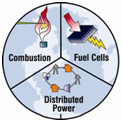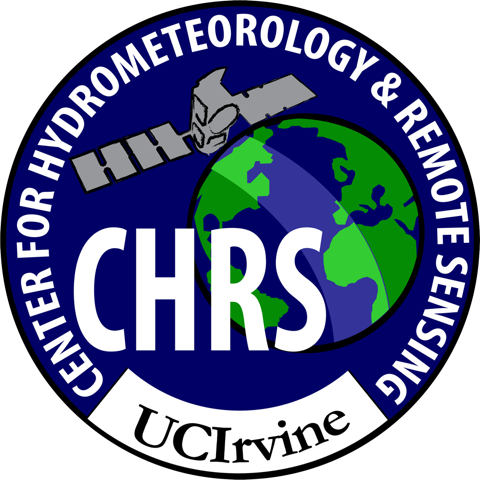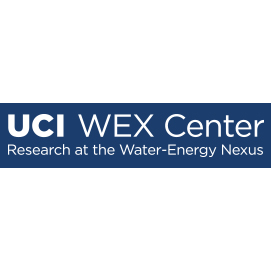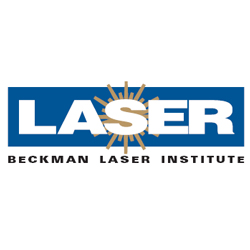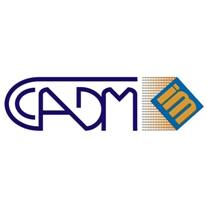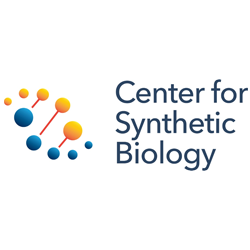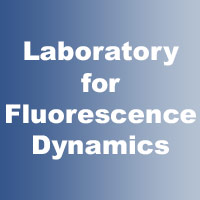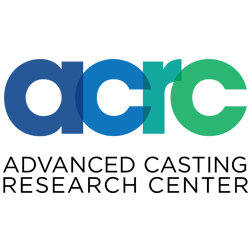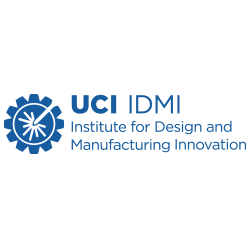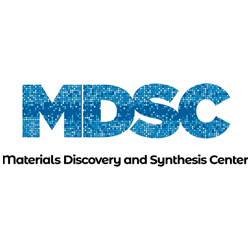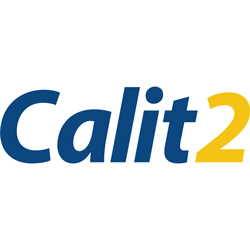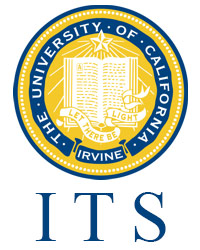Research Centers, Institutes & Facilities
The Samueli School of Engineering is at the forefront of interdisciplinary engineering research and technology, and is home to and affiliated with more than a dozen research centers and experimental facilities.
CENTERS, INSTITUTES, AND RESEARCH FACILITIES
Environmental Sustainability
Advanced Power and Energy Program (APEP)
The Advanced Power and Energy Program (APEP) addresses the development and deployment of efficient, environmentally sensitive, sustainable power generation and energy conversion worldwide. At the heart of this endeavor is the creation of new knowledge brought about through fundamental and applied research, providing education, research and development, beta testing and demonstration to bring new energy, transportation, smart grid and sustainable community design technologies to market. Research is supported by the Clean Energy Institute, National Fuel Cell Research Center, the UC Irvine Combustion Laboratory, the Beta Testing and Demonstration Laboratories, HORIBA Institute for Mobility and Connectivity (HIMaC) and the Pacific Rim Consortium on Combustion, Energy and the Environment. Director: Jack Brouwer, Professor of Mechanical and Aerospace Engineering
Center for Hydrometeorology and Remote Sensing (CHRS)
Center for Hydrometeorology and Remote Sensing (CHRS) was established to improve hydrologic prediction through development and refinement of hydrologic models and use of advanced observations, particularly from remote-sensing sources. Director: Amir AghaKouchak, Chancellor's Professor of Civil and Environmental Engineering
Water-Energy Nexus Center
Water-Energy Nexus Center promotes comprehensive and trans-disciplinary approaches to water efficiency, energy efficiency, and greenhouse gas reduction in an urban environment with a diverse, rapidly growing population. Director: Diego Rosso, Professor of Civil and Environmental Engineering
Human Health
Beckman Laser Institute and Medical Clinic
Beckman Laser Institute and Medical Clinic, affiliated with the UCI School of Medicine, is an important unit in the Samueli School’s Department of Biomedical Engineering. The multi-disciplinary center for research, teaching, clinical medicine and technology transfer has developed technologies that have had a major impact on cutaneous disease and treatment, cellular micromanipulation, intraluminal endoscopic imaging, functional imaging of cells and thick tissues, targeted phototherapies and multi-modality imaging. Director: Thomas Milner, Professor of Surgery and Biomedical Engineering
Center for Advanced Design and Manufacturing of Integrated Microfluidics (CADMIM)
Center for Advanced Design and Manufacturing of Integrated Microfluidics (CADMIM) is a National Science Foundation (NSF) Industry/University Cooperative Research Center (I/UCRC). Its mission is to develop design tools and manufacturing technologies for integrated microfludics targeting cost-effective, quick and easy assessment of the environment, agriculture and human health. Director: Abe Lee, Professor of Biomedical Engineering
Center for Complex Biological Systems (CCBS)
The UCI Center for Complex Biological Systems (CCBS) promotes research and education in the area of systems biology broadly defined, which includes aspects of synthetic biology, genomics and functional genomics, computational biology, mathematical biology, biophysics, bioengineering and molecular biology. The goal is to develop a more comprehensive and accurate understanding of complex biological systems and their behaviors. The basic approach is to facilitate the formation of multidisciplinary research teams to address the most critical questions. Director: Arthur Lander, Professor of Developmental and Cell Biology
Center for Synthetic Biology
The Center for Synthetic Biology aims to address fundamental challenges in health and sustainability by developing and applying synthetic biological systems. We are witnessing the emergence of a biotech age in which traditional fields of biology are transforming into engineering disciplines where the unique properties of life — e.g. complex decision making, self-organization, adaptation, replication, and evolution — can be manipulated, controlled, designed, and leveraged to solve pressing global problems. This center is accelerating this transformation by creating an inclusive environment for impactful research and the training of the next generation of synthetic biologists. Focus areas include nucleic acid, enzyme, and therapeutic protein engineering; genetic engineering; cell engineering; systems biology; microbiome engineering; and living materials. Director: Chang Liu, Associate Professor of Biomedical Engineering
Cardiovascular Innovation and Research Center (CIRC)
UCI Edwards Lifesciences Foundation Cardiovascular Innovation and Research Center (CIRC) is an academic-based research, innovation, and training center housed within the Samueli School of Engineering aimed at accelerating advances in cardiovascular health and health equity. The mission of CIRC is to lead in dynamic discovery, innovation, translation, and inclusive excellence, and train the next generation of diverse leaders in cardiovascular science and engineering. Director: Naomi Chesler, Professor of Biomedical Engineering
Laboratory for Fluorescence Dynamics (LFD)
Laboratory for Fluorescence Dynamics (LFD), a national research resource center for biomedical fluorescence spectroscopy, provides a state-of-the-art laboratory for fluorescence measurements with technical assistance to local, national and international visiting scientists. Director: Enrico Gratton, Professor of Biomedical Engineering
Materials and Manufacturing
Advanced Casting Research Center (ACRC)
At the Advanced Casting Research Center (ACRC) we collaborate on research addressing the global foundry industry. We bring fundamental understanding to existing processes, develop new methods and address management-technology interface issues with our industrial partners. Some call ACRC the finest foundry-related industry-university research consortium in the world. Director: Diran Apelian, Distinguished Professor of Materials Science and Engineering
Center for Complex and Active Materials (CCAM)
CCAM is a newly established NSF Materials Research Science and Engineering Center (MRSEC) at the University of California, Irvine, built on UCI's strengths in multidisciplinary science and engineering research, experiential learning, world-class facilities, and commitment to diversity. Director: Xiaoqing Pan, Professor of Materials Science and Engineering
Integrated Nanosystems Research Facility (INRF)
Integrated Nanosystems Research Facility (INRF) is a world-class cleanroom dedicated to the research and development of technology for integrated micro- and nanosystems through multidisciplinary research, education and outreach. Director: G.P. Li, Professor of Electrical Engineering and Computer Science
Institute for Design and Manufacturing Innovation (IDMI)
The Institute for Design & Manufacturing Innovation (IDMI) is a research institute with a goal to promote excellence in advanced manufacturing through strategic integration of research, education and community outreach. Facilities within IDMI include FABWorks and RapidTech, which provides R&D and advanced manufacturing training needs to students and industry members. Director: Lorenzo Valdevit, Professor of Materials Science and Engineering
Irvine Materials Research Institute (IMRI)
Irvine Materials Research Institute (IMRI) is a newly established interdisciplinary organization under the Office of Research of the University of California, Irvine (UCI). It serves as the cross-campus nexus for materials research at UCI. IMRI operates a wide range of state-of-the-art, open-access user facilities for the characterization of inorganic, organic, and biological materials and devices ranging from sub-Å to macroscopic length scales - available to all university, industry, and non-profit researchers. It offers advanced techniques and services including structural and chemical characterization, 3D imaging, surface analysis, physical property measurements, and fabrication of materials and devices by a variety of techniques. Director: Xiaoqing Pan, Professor of Materials Science and Engineering
Materials Discovery and Synthesis Center (MDSC)
The Materials Discovery and Synthesis Center (MDSC) enables the creation of novel and unprecedented materials, with a focus on discovery of new compounds and microstructures at a rapid pace. The MDSC provides users with access to flexible materials synthesis tools that are able to fabricate nanomaterial, two-dimensional, thin film, and bulk specimen forms from a wide spectrum of metallic and ceramic systems. Computational materials expertise and common software packages on the quantum, atomistic, and mesoscopic scales are also available to facilitate user research with predictive materials theory and simulation. Director: Tim Rupert, Associate Professor of Materials Science and Engineering

World Institute for Sustainable Development of Materials (WISDOM)
The World Institute for Sustainable Development of Materials (WISDOM) was founded in 2020 with a $1 million gift from the Lincoln Dynamic Foundation. The new institute will advance interdisciplinary research, education and knowledge translation in an effort to innovate, evaluate and adopt technologies that utilize safer, nontoxic chemicals and materials, with the goal of mitigating environmental impacts. WISDOM’s potential research areas include the development of materials for advanced energy, transportation and other industrial processes that can mitigate environmental damages; and materials for geoengineering applications, such as solar reflection and greenhouse gas removal. Co-Directors: Julie Schoenung, Materials Science and Engineering and Dele Ogunseitan, Public Health
Mobility and Communications
Center for Embedded Systems and Cyber-Physical Systems (CECS)
Center for Embedded Computer Systems (CECS) focuses on the emerging theory and technology of embedded systems. The center emphasizes research and development of automotive, medical and communications applications. Director: Fadi Kurdahi, Professor of Electrical Engineering and Computer Science
Calit2 (California Institute for Telecommunications and Information Technology)
Calit2 (California Institute for Telecommunications and Information Technology) is one of four Institutes for Science and Innovation formed by the state to reside within the University of California. Calit2 is a multidisciplinary research institute that integrates academic research with industry experience to develop innovative approaches to information technology. Director: G.P. Li, Professor of Electrical Engineering and Computer Science
Center for Pervasive Communications and Computing (CPCC)
Center for Pervasive Communications and Computing (CPCC) facilitates research in emerging communications technologies that will dramatically change the way people access and use information. The need for ubiquitous communications – to anywhere at any time – results in many challenges in communications and information theory, signal processing, systems, circuits and networking. CPCC conducts fundamental research in these areas with the goal of pushing technological limits to their extremes. Director: Hamid Jafarkhani, Chancellor’s Professor of Electrical Engineering and Computer Science
Institute of Transportation Studies
Institute of Transportation Studies has the fundamental goal of stimulating interdisciplinary research on contemporary transportation issues. ITS research involves faculty and students from the Samueli School, the School of Social Sciences, the School of Social Ecology, The Paul Merage School of Business, the School of Law, the Program in Public Health and the Donald Bren School of Information and Computer Sciences. ITS is also part of the University of California Transportation Center (UCTC), one of 10 federally designated centers for transportation research and education, and a member of the Council of University Transportation Centers. Director: Stephen Ritchie, Professor of Civil and Environmental Engineering
ProperData: An NSF SaTC Frontier
The NSF-funded ProperData Center addresses the urgent need for protection of personal data flow on the internet. A multidisciplinary team of outstanding researchers is building fundamentals, creating new technologies and informing policy to improve the transparency and control of personal data. Director: Athina Markopoulou, Professor of Electrical Engineering and Computer Science

